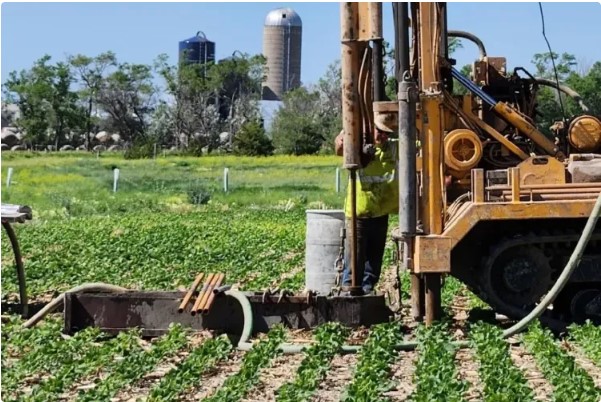PIERRE, S.D. – The reaction to a South Dakota Supreme Court decision that threw a wrench into the plans of a company hoping to build a carbon sequestration pipeline came fast and furious Thursday.
The decision took what had been a victory for Summit Carbon Solutions at the circuit court level, and returned it to the lower courts for further deliberation — giving landowners a win.
The Court on Thursday reversed and remanded circuit court rulings, determining Summit Carbon Solutions had not demonstrated that it is a “common carrier” under state law. Common carriers — typically utilities and energy companies — have eminent domain powers to lay pipelines on private lands.
But the circuit court judges who threw out several landowner lawsuits did not afford the plaintiffs time and access to evidence discovery, and SCS had not demonstrated that it is a common carrier before the cases were decided at the circuit levels, the Supreme Court ruled. The decision also puts into question of whether the carbon transported by pipelines to be stored in deep geologic sites in North Dakota is a commodity, another requirement to qualify for eminent domain powers. While carbon has been defined as a commodity by the Legislature, carbon as a commodity is typically for industrial use and not for sequestration.
The Court also ruled that even if SCS does ultimately meet the definition of a common carrier, it can only use minimally invasive methods to survey routes for the pipeline.
“I am very pleased with the Supreme Court decision,” state Rep. Scott Odenbach, R, Spearfish said. “It is confirmation of what many of us have been saying for years: That carbon capture in order to secure green energy government payments is not a commodity under South Dakota law allowing eminent domain.”
In a statement, Summit said it was evaluating the decision and looking forward to providing the circuit courts information showing that it is a common carrier under state law and that CO2 is a commodity.
“The economic impact of carbon capture, utilization, and storage (CCUS) on rural America is significant, and will greatly benefit agriculture and farmers,” the statement said. “We are committed to ensuring that these benefits reach communities across our project footprint as we continue to be a valuable partner in this growing market, and look forward to progressing this project.”
Summit is seeking to build a pipeline network in Minnesota, Iowa, Nebraska and the Dakotas to capture carbon generated by ethanol plants. The carbon would be sequestered in the North Dakota geologic sites.
The drive by national policy leaders to lower carbon emissions, coupled with federal tax credits, is the impetus for the project.
But it has fractured the Republican dominated Legislature in the last two sessions, with some seeking to take a hard stand on landowner rights and others saying that the future of the state’s ethanol industry depends on the pipeline project.
A sharply divided Legislature passed Senate Bill 201 this year, the so-called Landowners’ Bill of Rights, in an attempt to bridge the two sides. But landowner rights groups argued the bill was a giveaway. They collected enough signatures to refer the law to a vote on the November ballot, known as Referred Law 21.
“Despite the proponents of SB 201 trying to convince everybody that carbon pipelines were inevitable, the court has said not so fast, and that’s a good day for the real Bill of Rights in South Dakota,” Odenbach, a lawyer, said.
“I think the Legislature had a duty and still has a duty to act to define what public use is for purposes of seeking eminent domain – to provide certainty to both landowners and businesses and avoid costly legal battles in the future.”
House Majority Leader Will Mortenson, R-Fort Pierre, was one of the architects of the compromise.
“The Supreme Court sided with our argument: Carbon pipelines don’t qualify for eminent domain if they are just dumping the product in a hole in the ground,” he said. “This ruling vindicates those of us who fought for landowner rights with respect to eminent domain and beyond. If voters approve RL21, we will unquestionably have the strongest landowner protections in the country.”
Brian Jorde, a lawyer who represented the landowners, said the Court agreed with the arguments they made during the March hearing. The ruling affirmed that private companies can’t go on to private land and “trash” that land. The Court ruled that even companies that are allowed to do survey work under the law can’t disturb that land.
“We’re just thrilled the Supreme Court designated that there is a clear, minimally invasive line today,” he said.
The presence of large drilling equipment and digging equipment on landowner lands is what kicked off the lawsuits, he added. Sumit’s survey work was “over the top.”
“The irony is Sumit went ahead and conducted the surveys during the pendency of this decision,” Jorde said. “They clearly got what they wanted from my clients. We’ll have to see what to do next.”
One other major part of Thursday’s ruling: The Court decided that landowners subject to eminent domain disputes have the right to a jury trial to determine damages.



